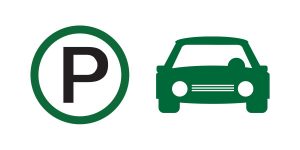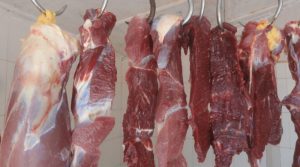According to recent reports, Nairobi’s cost of living is expected to increase significantly if a new set of levies proposed by the Nairobi County, are implemented.

These new levies which have been included in the Nairobi City County Finance Bill, 2020 will mean that individuals living in Nairobi, will have added strains on their finances.
The Nairobi City County Finance Bill, 2020 wants a number of charges implemented, as a way to contribute towards it own source revenue target of 15.5 billion Kenyan Shillings for the financial year that will end on the 30th of June 2021.
One of the new charges or levies, is that different produce or goods being brought into Nairobi will now for the first time, cost a fee.

Traders who deal with Miraa, will need to pay a sum of 50 Kenyan Shillings per each small bag, 100 Kenyan Shillings per each medium sized bag, 500 Kenyan Shillings per Probox and 1,000 Kenyan Shillings per pickup.
For imported Fish, each box will attract an offloading charge of 30 Kenyan Shillings per box.
With regards to Tomatoes, they will attract a fee of 1,500 Kenyan Shillings per Probox. If you are however importing your Tomatoes from Tanzania, doing so will cost you a charge of around 50 Kenyan Shillings per box, to 250 Kenyan Shillings per box depending of course on the sizes which could range from small to extra large.

Trading in Groundnuts, will come with an offloading cost of 100 Kenyan Shillings per bag, Flowers will be charged at 3,000 Kenyan Shillings per Lorry. A box of Thorn Melons will cost 50 Kenyan Shillings per box, a pickup of Avocado will cost 1,500 Kenyan Shillings, and a Probox of Avocado will attract a fee of 800 Kenyan Shillings.
One Ton of French Beans will be charged at 1,000 Kenyan Shillings, and One Ton of Macadamia will also attract a fee of 1,000 Kenyan Shillings. For other items a fee of 500 Kenyan Shillings per Lorry and 100 Kenyan Shillings per pickup, will apply.
Nairobi County’s property industry has also not been left out, as new charges for the transportation of building materials, have been included. The transportation of building stones, will come with a seasonal fee of around 48,000 Kenyan Shillings to 144,000 Kenyan Shillings. This will of course, depend on the amount of tons. The option to pay per trip, will also be available.

For Ballast and Sand, the fees will be 120,000 Kenyan Shillings and 48,000 Kenyan Shillings. Hardcore fees, will be around 24,000 Kenyan Shillings and 120,000 Kenyan Shillings.
The transferring of properties under the Tenant Purchase Scheme, will now for the first time, attract a fee of 10,000 Kenyan Shillings per transfer.
New fees will also be introduced in the disposal of solid waste by institutions of learning. Nurseries and Daycares for instance will be charged between 20,000 Kenyan Shillings and 3,000 Kenyan Shillings. Said figures will however depend on the number of pupils, and whether or not they are private or public.
For secondary schools who offer boarding facilities, the fee will be between 3,000 Kenyan Shillings and 20,000 Kenyan Shillings, while the fee for day mode secondary schools will be between 2,500 Kenyan Shillings and 10,000 Kenyan Shillings.
Colleges and universities on the other hand, will pay levies of between 20,000 Kenyan Shillings and 200,000 Kenyan Shillings per month.
Each month, residential buildings will now pay between 300 Kenyan Shillings and 600 Kenyan Shillings per household. This was previously not the case.
Transportation and waste collection for CBOs (Community Based Organizations), will now have a fee of 3,000 Kenyan Shillings for trucks that are between 1 ton and 7 tonnes. Trucks above 7 tons, will attract a fee of 6,000 Kenyan Shillings.

The Nairobi City County Finance Bill, 2020 will also be looking to charge 6,000 Kenyan Shillings per year for the storage of inflammable materials for liquefied petroleum gas sellers, as well as petroleum for own use. Shops, Hardware stores, Bars and Cafes will also be charged the same amount with regards to the levies.
Chemists depending on the size of their establishments, will be charged between 6,500 Kenyan Shillings and 12,000 Kenyan Shillings.
Disposal of non hazardous and non toxic industrial waste, will now come with a per ton levy of 1,000 Kenyan Shillings.
The Nairobi City County Finance Bill, 2020 which was first brought before the Nairobi County Assembly on the 17th of November 2020 is in addition, proposing that a number of penalties, fees, taxes, charges and levies, be increased.
It has now subsequently been brought before the Nairobi County Assembly’s Budget and Appropriations Committee who already gave the general public a period of time to submit memoranda regarding the Bill.
According to the Chairperson of the Budget and Appropriations Committee; Robert Mbatia, the charges are proposals that might either be maintained or revised depending on justification from the City Hall and views from the public.
He said, “We are set to have an entry meeting with the county treasury to justify the charges and the basis for the same. Thereafter we will have a sitting with the sectorial to give their inputs then finally we sit down with the sectorial reports and the public views then we make a decision that after the submission of the memoranda, we will meet City Hall, NMS (Nairobi Metropolitan Services) and KRA (Kenya Revenue Authority) to justify the charges.”
Mr. Robert added that the charges are being compared to the 2018 levies because the 2019 Bill was never gazetted into becoming a law.
With regards to Disaster and Emergency Management every household will 2,000 Kenyan Shillings per year as a Fire Certificate Fee under the Nairobi City County Finance Bill, 2020. Mega supermarkets would be charged 30,000 Kenyan Shillings as opposed to 25,000 Kenyan Shillings that was the case in the 2018 Bill. Hyper markets on the other hand, will be charged 40,000 Kenyan Shillings.

The levy for Fish and Chips cafes will remain at 4,500 Kenyan Shillings for the smaller sized cafes. The larger Fish and Chips cafes will see their levy doubled from 6,000 Kenyan Shillings to 12,000 Kenyan Shillings.
All bars and restaurants with less than 100 seats will attract a fee of 4,500 Kenyan Shillings. Medium sized bars and restaurants will be charged 12,000 Kenyan Shillings which is much higher than the previous figure of 4,500 Kenyan Shillings. For larger bars and restaurants the fee is up from 6,000 Kenyan Shillings to 25,000 Kenyan Shillings.
All small scale gas retailers will be expected to pay a flat fee of 30,000 Kenyan Shillings which is an increment of over 25,000 Kenyan Shillings from the 4,500 Kenyan Shillings that was the case in 2018.
For Gas filling stations the levy is up from 25,000 Kenyan Shillings to 100,000 Kenyan Shillings.
All traders that occupy buildings will be charged a levy of between 5,000 Kenyan Shillings and 30,000 Kenyan Shillings in Occupation Certificate Fees. This is different from the flat rate of 5,000 Kenyan Shillings in the 2018 Bill.

Insurance companies will go from paying between 4,500 Kenyan Shillings and 12,000 Kenyan Shillings, to paying between 12,000 Kenyan Shillings and 25,000 Kenyan Shillings. Professional organizations will pay a fee of between 6,000 Kenyan Shillings and 20,000 Kenyan Shillings.
Commercial buildings with up to four floors and Highrise constructs, will pay 12,000 Kenyan Shillings. Said buildings with more than four floors, will pay 14,000 Kenyan Shillings.
For Petrol stations large stations will pay 50,000 Kenyan Shillings, medium ones 25,000 Kenyan Shillings and small Petrol stations 12,000 Kenyan Shillings. This is much better than the uniform flat rate of 100,000 Kenyan Shillings currently implemented.
According to the Nairobi City County Finance Bill, 2020, “Fire inspection fee shall be charged per visit with all chargeable services to be charged at a minimum of Sh4,500.”
The Nairobi City County Finance Bill, 2020 is proposing that the county should go back to zonal daily on street parking charges. What this means is that private motorists will have to pay 400 Kenyan Shillings in order to park in Kijabe Street which is part of Zone I, and the Central Business District (CBD). This is double the current fee which stands at 200 Kenyan Shillings.

For Zone II which covers Yaya Centre, Westlands, Kilimani, Ngara, Hurlingham, Eastleigh, Upper Hill, Karen, Industrial area, Gigiri, Lavington, Ngara, Highridge, Community, and Milimani, parking will cost 300 Kenyan Shillings.
Zone III which includes all areas that are not in Zone I and Zone II alongside all residential areas not included in the CBD, parking will attract a fee of 200 Kenyan Shillings.
All areas bordering other counties (Zone IV), will attract a fee of 100 Kenyan Shillings.
In 2019 the introduction and implementation of similar levies was stopped after the COFEK (Consumer Federation of Kenya) took the matter to court and was able to secure the suspension of the levies. The led to the levies reverting back to a flat rate of 200 Kenyan Shillings.
Lorries of between 3 and 10 tons will be charged 1,000 Kenyan Shillings, along with all non Matatu buses. Trucks on the other hand, will be charged 3,000 Kenyan Shillings.
Private vehicles will pay 7,000 Kenyan Shillings monthly, 18,000 Kenyan Shillings per every 3 months, 32,000 Kenyan Shillings per every 6 months or 55,000 Kenyan Shillings per year.
Regarding online taxi applications the bill states that, “All online taxi applications will deduct parking fee from source for all vehicles on their platform.”
The use of parking slots for only offloading, will come with a fee of between 200 Kenyan Shillings and 1,000 Kenyan Shillings based on the type or kind of vehicle. The absence of an off-street parking ticket will result in a flat penalty of 1,000 Kenyan Shillings.
All parking at the County Bus Station will come with a 150 Kenyan Shillings fee for the first hour and 50 Kenyan Shillings every 15 minutes after the first hour.
All Matatus will be charged between 3,650 Kenyan Shillings and 37,960 Kenyan Shillings as fees for seasonal tickets. Said fees, will be paid via registered saccos. Minibuses will be charged between 5,280 Kenyan Shillings and 47,250 Kenyan Shillings, and buses will be charged 7,200 Kenyan Shillings and 61,920 Kenyan Shillings. The seasonal tickets start from monthly, 3 months, half a year and then yearly.

In the aspect of solid waste management, the disposal of domestic waste will now cost a fee of 300 Kenyan Shillings per ton (which is an increase of 100 Kenyan Shillings), disposing of expired foodstuff will cost 800 Kenyan Shillings per ton, disposing of institutional or commercial waste would cost 600 Kenyan Shillings, while the tipping and collecting of construction waste, will cost 2,000 Kenyan Shillings per ton, much higher than the 250 Kenyan Shillings fee that is currently the case.
For restaurants, they will pay levies of between 2,500 Kenyan Shillings and 10,000 Kenyan Shillings per month of course, depending on the numbers of seats. This is higher than the current 2,000 Kenyan Shillings to 6,000 Kenyan Shillings fee range.
For guest houses users will attract fees of between 2,500 Kenyan Shillings and 8,000 Kenyan Shillings.
For hotels, they will be charged between 3,000 Kenyan Shillings and 50,000 Kenyan Shillings based on their category. Religious institutions, will attract a fee of between 5,000 Kenyan Shillings and 10,000 Kenyan Shillings depending on their size (significantly higher than the current 2,000 Kenyan Shillings fee), office blocks will pay a fee of between 2,000 Kenyan Shillings and 60,000 Kenyan Shillings based on the number of rooms; way higher than the current fee of 1,000 Kenyan Shillings and 10,000 Kenyan Shillings.
For groceries and Miraa outlets they will be charged 2,000 Kenyan Shillings each month. Pharmacies would be charged between 2,000 Kenyan Shillings and 6,000 Kenyan Shillings. Bars would be charged between 3,000 Kenyan Shillings and 5,000 Kenyan Shillings.

Butcheries will attract a fee of 2,000 Kenyan Shillings and 5,000 Kenyan Shillings.
Each medical examination booklet would cost 1,000 Kenyan Shillings, pest control inspections per site will cost 3,000 Kenyan Shillings, and the license to operate a plant nursery and the tree cutting business license, will attract a fee of 10,000 Kenyan Shillings.
The proposed fee for slaughtering livestock is now 500 Kenyan Shillings for cattle, 200 Kenyan Shillings for goats, pigs and sheep, and 50 Kenyan Shillings for poultry.
The health inspection fee for livestock from upcountry will attract a fee of 500 Kenyan Shillings for cattle, 150 Kenyan Shillings for goats and sheep, 1,000 Kenyan Shillings for cats and dogs, 25 Kenyan Shillings per each bird, and 250 Kenyan Shillings for donkeys and pigs.
The re-inspection of carcasses will come with a charge of 10 Kenyan Shillings per bird, 50 Kenyan Shillings for goats and sheep, 100 Kenyan Shillings for Pigs, and 250 Kenyan Shillings for Cattle.
Traders will be charged a fee of 200 Kenyan Shillings every week or 50 Kenyan Shillings each day, in all of Nairobi County’s major markets; Adams, Jogoo Road furniture, Gikomba, Outer Ring stage, Tena, Fig Tree, Ngong Road, Maziwa, and Toi.

For modern day stalls the fees went up from 500 Kenyan Shillings to 750 Kenyan Shillings per month. Those at bus parks will be charged 1,000 Kenyan Shillings per month (an increase from the current fee of 500 Kenyan Shillings), alongside a one time registration fee of 3,000 Kenyan Shillings.
What do you think about this development? Are you for or against?
Are there any other topics, news, devices, or categories that you would like us to write on? Feel free to reach out to Mpesa Pay in the comment section.


